Companies in the hospitality industry are choosing to make diversity and inclusion a priority. By doing so, their organization best represents today’s market and also helps them attract and retain the best talent in the industry. Hiring a chief diversity officer, developing an inclusivity strategy, and connecting with their varied client base can ensure that diversity is being addressed at every level and companies are successfully achieving their goals.
Industry Insights
We have written thousands of articles about all aspects of hospitality, including valuations, investing, lending, operations, asset management, and much more.
The Importance of Diversity at all Levels of the Hospitality Industry
Companies in the hospitality industry are choosing to make diversity and inclusion a priority. By doing so, their organization best represents today’s market and also helps them attract and retain the best talent in the industry. Hiring a chief diversity officer, developing an inclusivity strategy, and connecting with their varied client base can ensure that diversity is being addressed at every level and companies are successfully achieving their goals.
HVS Market Pulse – Milwaukee, Wisconsin
Following nearly a decade of revitalization and growth, COVID-19 delivered a significant blow to Milwaukee similar to what was felt in nearby urban Midwestern cities. Despite Milwaukee’s longstanding history as a manufacturing powerhouse, as well as its strong financial and healthcare sectors, COVID-19 caused hotel demand to fall by 58% and ushered in a wave of work-from-home culture and major event cancellations. Where does Milwaukee go from here, and what was the impact of event cancellations?
HVS Las Vegas Casino & Hotel Market Outlook 2021
The impact of the COVID-19 pandemic on the Las Vegas economy has been extremely harsh given the market’s reliance on visitation and conventions. Following five consecutive years of accommodating more than 42 million visitors, Las Vegas hosted just over 19 million people in 2020 (the lowest number of visitors since 18.1 million in 1989). Continued weak performance is anticipated through the first half of 2021.
Anchorage Lodging Market: Winter 2021 Update
Declining oil and gas prices since 2014 have largely resulted in an economic retrogression in Alaska. Aside from the oil and gas industry, the tourism industry is one of the largest private-sector groups of employers in the state and accounts for one of every eight jobs. Therefore, the impact of the COVID-19 pandemic has been detrimental to the local economy. While the widespread availability of a vaccine has ignited hope, tourism recovery faces some obstacles in 2021.
The Hotel Industry's Pandemic Bright Spot: The Extended-Stay Segment
Extended-stay hotels have long been the industry's answer to those seeking accommodations similar to an apartment, but without the need to sign a long-term lease. Stays can be as short as one overnight or as long as years, in rare cases, but generally trend from two weeks to a couple of months.
HVS Market Pulse: Indianapolis, Indiana
Indianapolis was expecting another record-breaking visitation year in 2020. However, the onset of the COVID-19 pandemic brought the city’s thriving convention and sports/entertainment sectors to a halt, dragging the hotel industry down with it. Fortunately, certain factors, including the continued operation of the Indianapolis Convention Center in 2020 and a promising 2021 calendar of events, are providing a good foundation for its recovery.
HVS Market Pulse: Green Bay, the Home of the Packers
While Lambeau Field, the home field of the Green Bay Packers, has been around since the 1950s, the area surrounding it has undergone many transformations over the past decade given the success of the NFL team. In this article, we examine the market’s historical trends, the impact of the pandemic, and the outlook for Green Bay.
HVS Market Pulse - Minneapolis-St. Paul
The Twin Cities hotel market has suffered a greater loss than that of the nation given the combined impact of the COVID-19 pandemic and civil unrest. Many hotels suspended operations between April and June, with little activity taking place in urban cores. How far has the market fallen, and what will the next few years look like?
Impact of Recent Federal Stimulus on the Travel Industry
Recent stimulus passed through the federal government will significantly impact recovery for the travel industry. Publicly funded destination marketing organizations (“DMOs”), tourism agencies, and entertainment venues will benefit from provisions of the $900 billion COVID-19 relief package. HVS explains how certain provisions of recent stimulus and President Biden’s proposed stimulus package contribute to recovery of vital sectors of the US economy.
HVS Market Pulse: The Florida Keys Lodging Market
The COVID-19 global pandemic has significantly impacted lodging markets across the country; however, each submarket has been affected differently, which has largely depended on the supply and demand forces of that submarket. As a renowned leisure destination that has weathered economic downturns and natural/ecological disasters in the past, the Florida Keys has proven to be resilient, and this recovery should be no different.
Industry Insights
We have written thousands of articles about all aspects of hospitality, including valuations, investing, lending, operations, asset management, and much more.
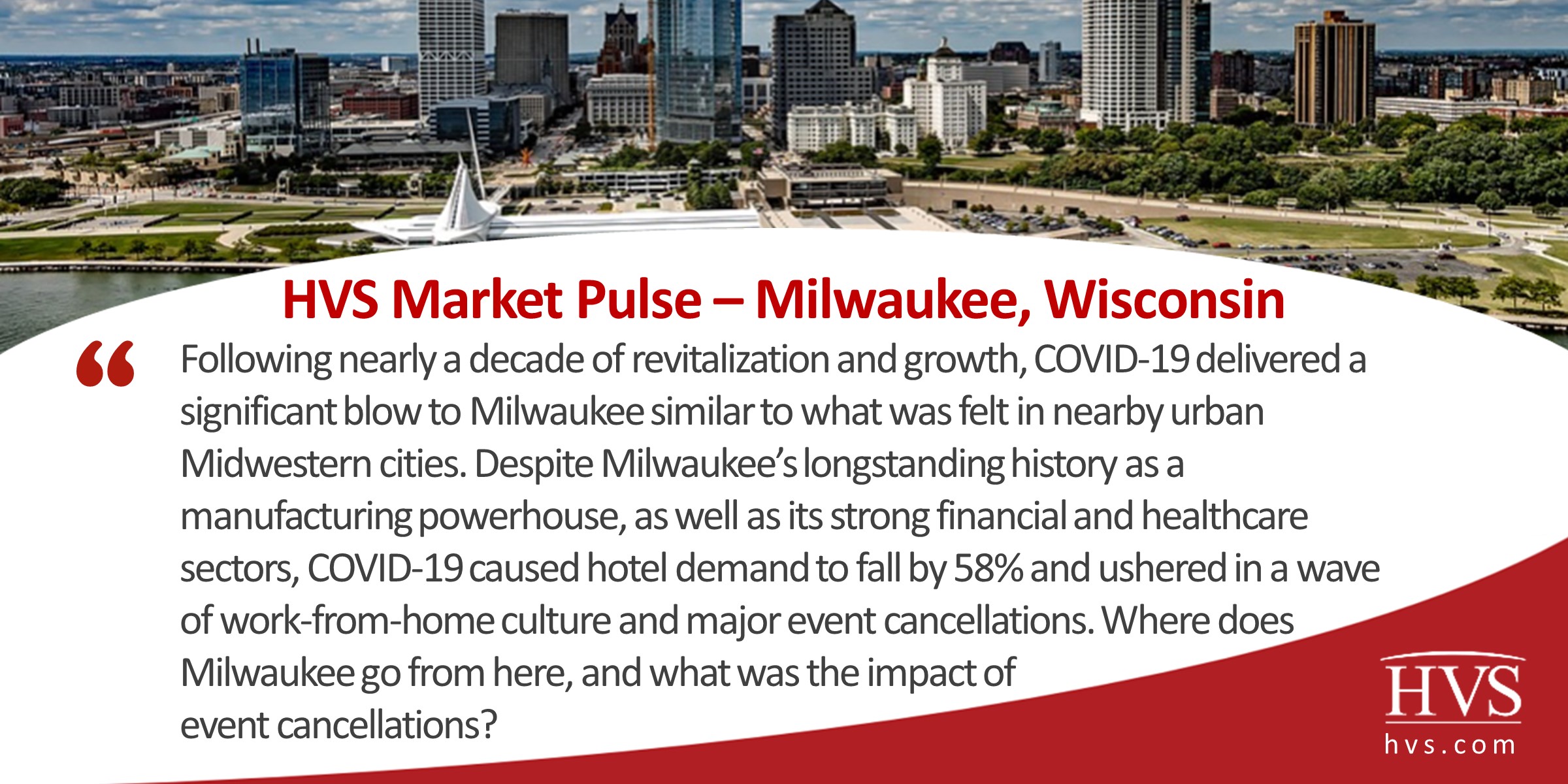
Following nearly a decade of revitalization and growth, COVID-19 delivered a significant blow to Milwaukee similar to what was felt in nearby urban Midwestern cities. Despite Milwaukee’s longstanding history as a manufacturing powerhouse, as well as its strong financial and healthcare sectors, COVID-19 caused hotel demand to fall by 58% and ushered in a wave of work-from-home culture and major event cancellations. Where does Milwaukee go from here, and what was the impact of event cancellations?
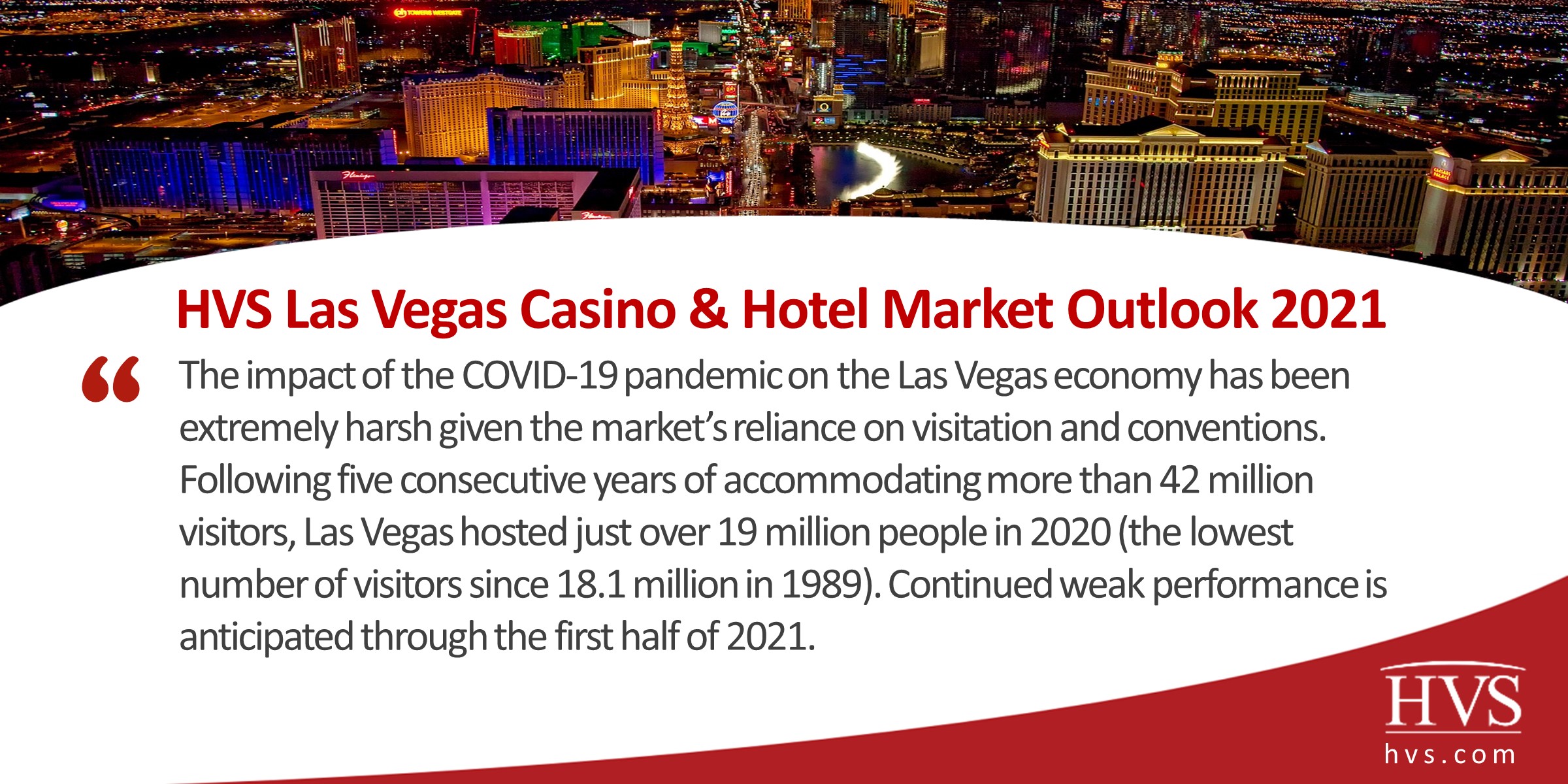
The impact of the COVID-19 pandemic on the Las Vegas economy has been extremely harsh given the market’s reliance on visitation and conventions. Following five consecutive years of accommodating more than 42 million visitors, Las Vegas hosted just over 19 million people in 2020 (the lowest number of visitors since 18.1 million in 1989). Continued weak performance is anticipated through the first half of 2021.
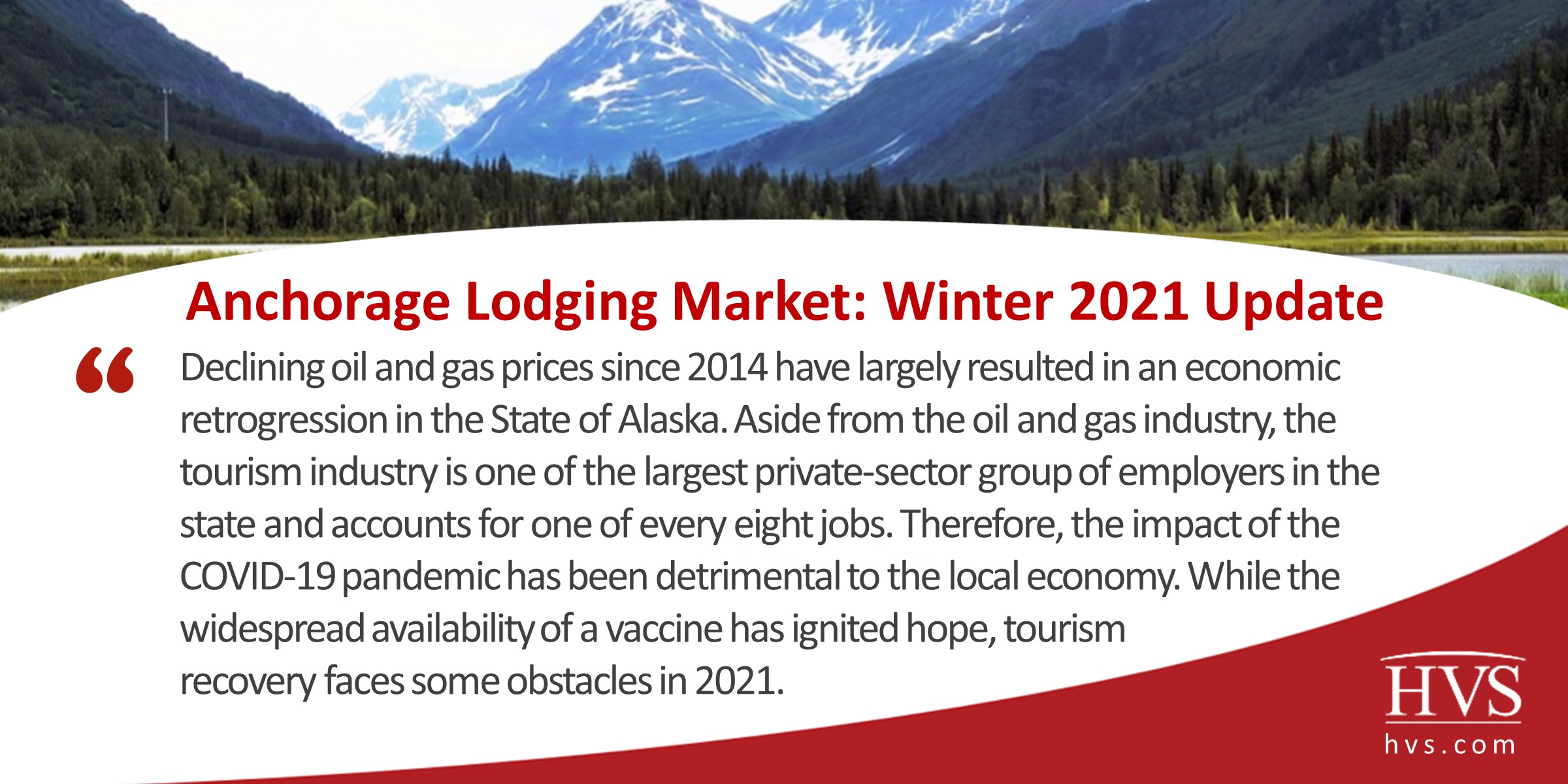
Declining oil and gas prices since 2014 have largely resulted in an economic retrogression in Alaska. Aside from the oil and gas industry, the tourism industry is one of the largest private-sector groups of employers in the state and accounts for one of every eight jobs. Therefore, the impact of the COVID-19 pandemic has been detrimental to the local economy. While the widespread availability of a vaccine has ignited hope, tourism recovery faces some obstacles in 2021.

Extended-stay hotels have long been the industry's answer to those seeking accommodations similar to an apartment, but without the need to sign a long-term lease. Stays can be as short as one overnight or as long as years, in rare cases, but generally trend from two weeks to a couple of months.
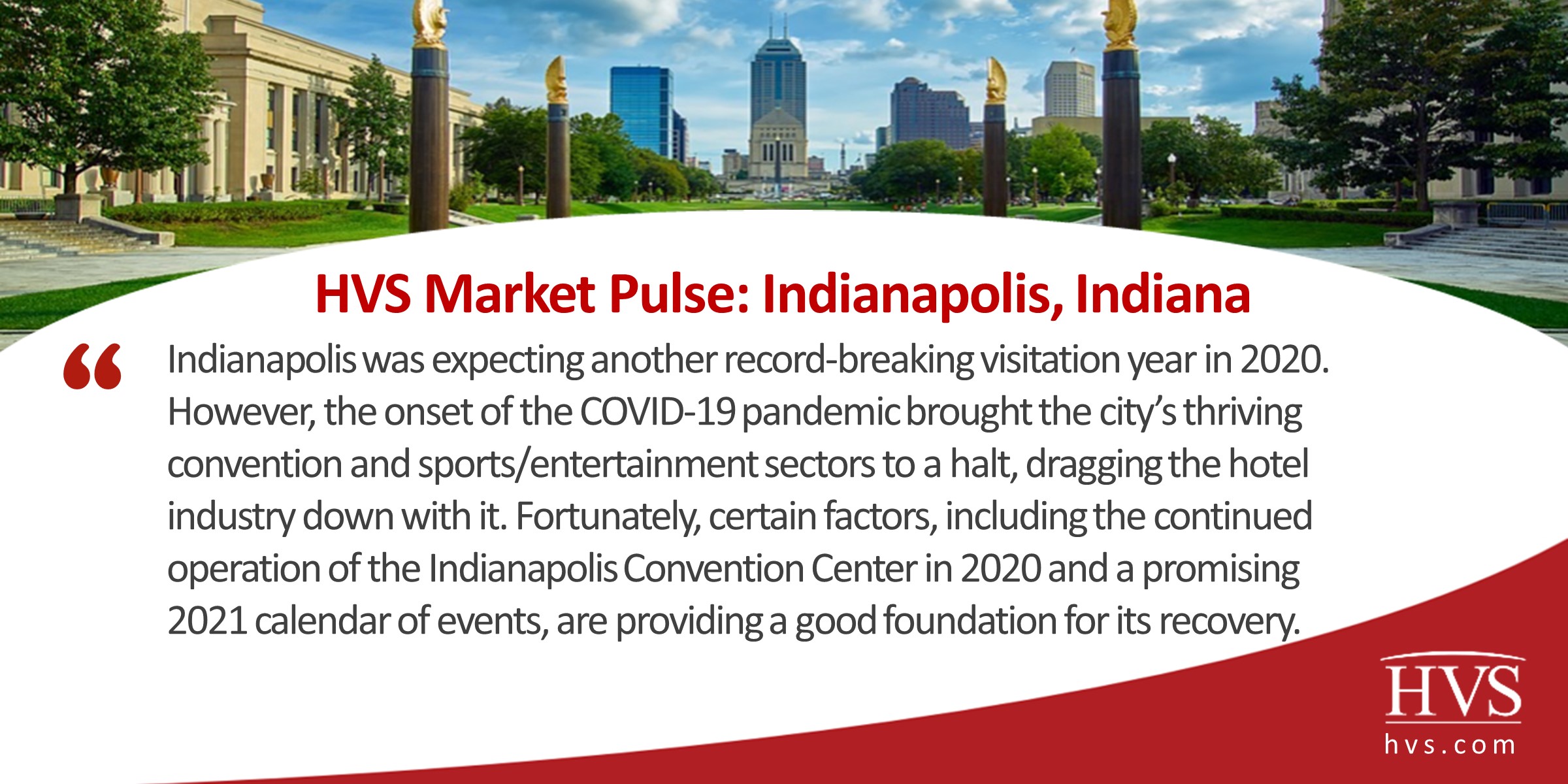
Indianapolis was expecting another record-breaking visitation year in 2020. However, the onset of the COVID-19 pandemic brought the city’s thriving convention and sports/entertainment sectors to a halt, dragging the hotel industry down with it. Fortunately, certain factors, including the continued operation of the Indianapolis Convention Center in 2020 and a promising 2021 calendar of events, are providing a good foundation for its recovery.
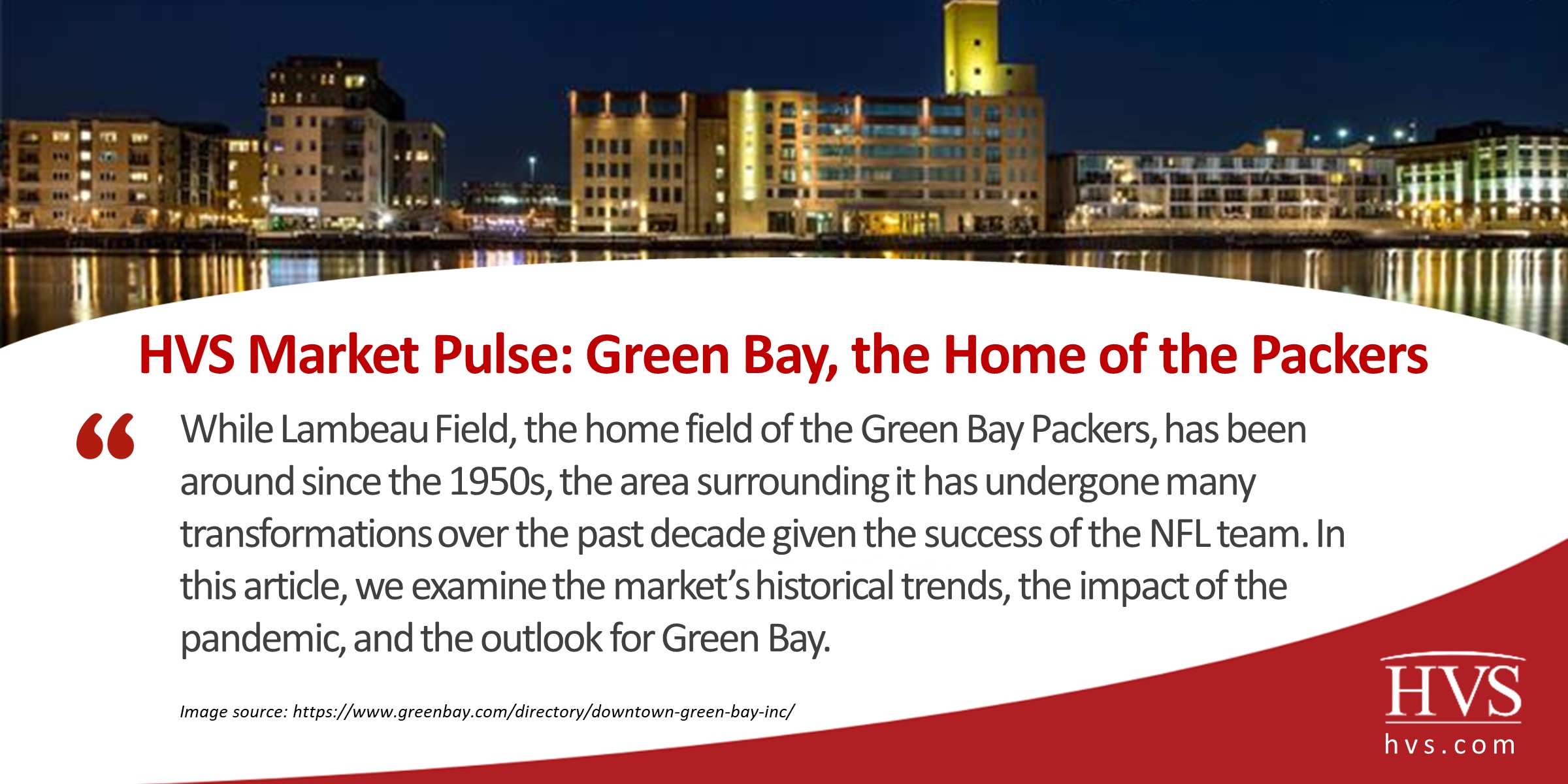
While Lambeau Field, the home field of the Green Bay Packers, has been around since the 1950s, the area surrounding it has undergone many transformations over the past decade given the success of the NFL team. In this article, we examine the market’s historical trends, the impact of the pandemic, and the outlook for Green Bay.
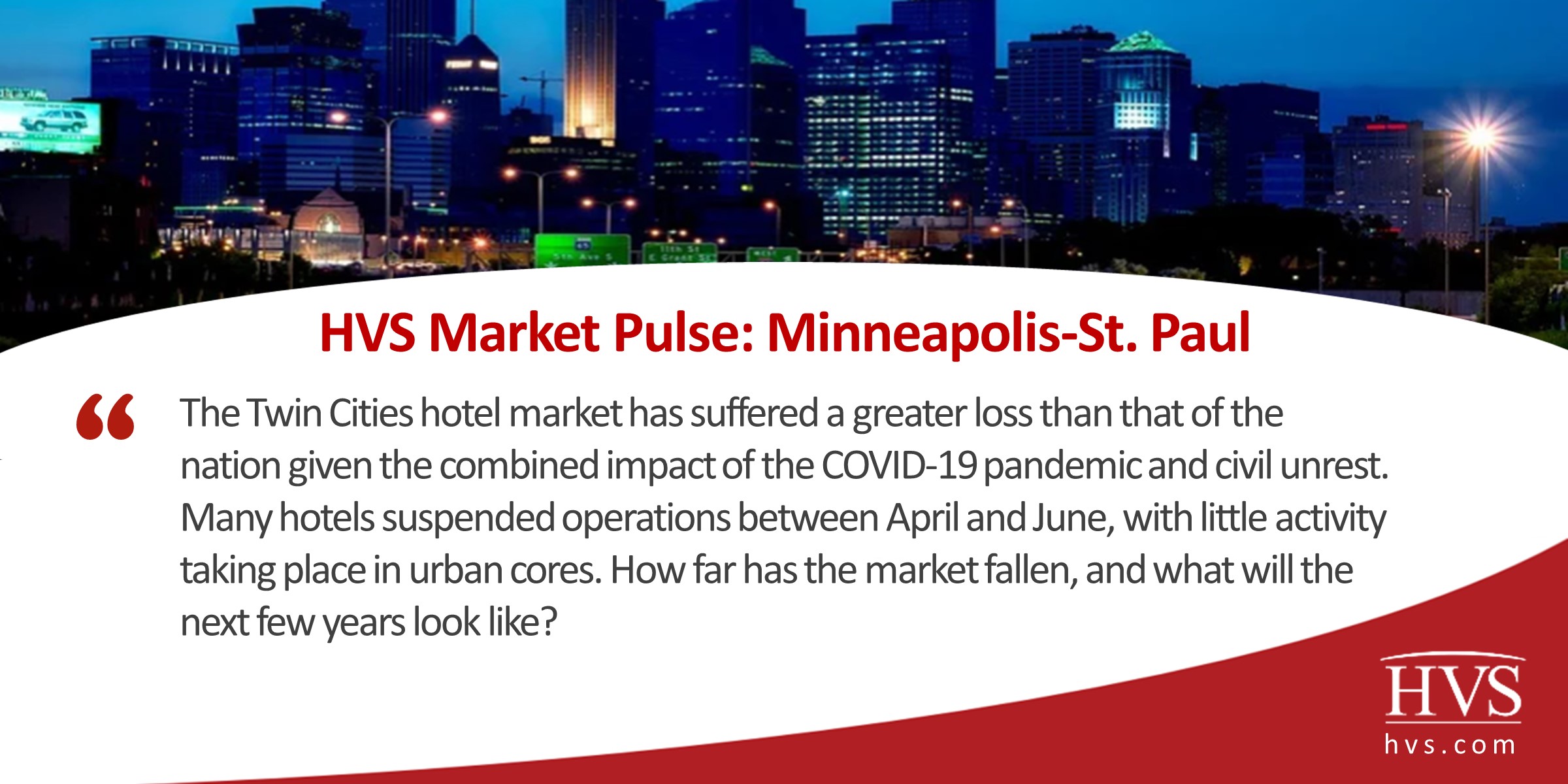
The Twin Cities hotel market has suffered a greater loss than that of the nation given the combined impact of the COVID-19 pandemic and civil unrest. Many hotels suspended operations between April and June, with little activity taking place in urban cores. How far has the market fallen, and what will the next few years look like?
Recent stimulus passed through the federal government will significantly impact recovery for the travel industry. Publicly funded destination marketing organizations (“DMOs”), tourism agencies, and entertainment venues will benefit from provisions of the $900 billion COVID-19 relief package. HVS explains how certain provisions of recent stimulus and President Biden’s proposed stimulus package contribute to recovery of vital sectors of the US economy.
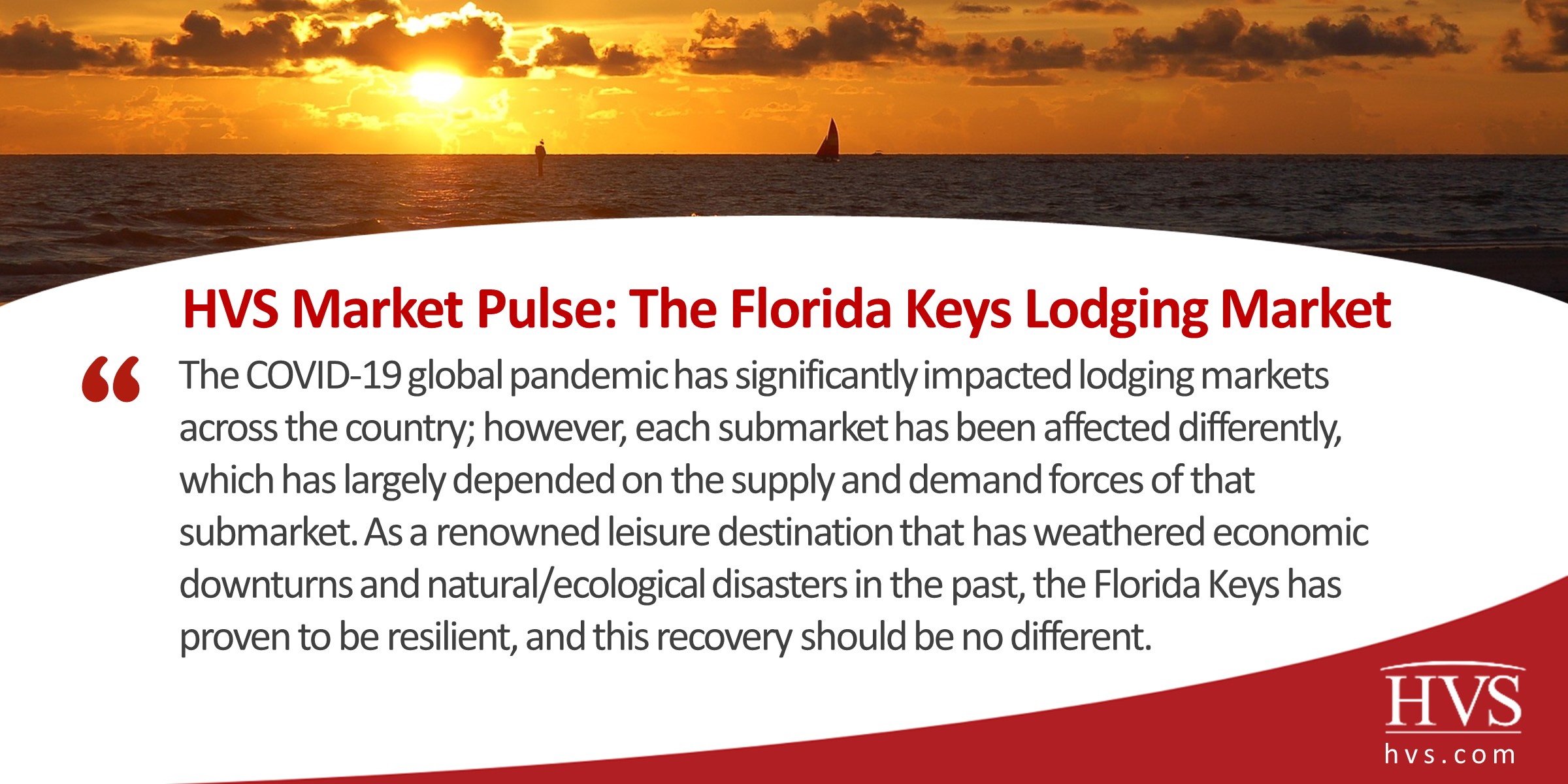
The COVID-19 global pandemic has significantly impacted lodging markets across the country; however, each submarket has been affected differently, which has largely depended on the supply and demand forces of that submarket. As a renowned leisure destination that has weathered economic downturns and natural/ecological disasters in the past, the Florida Keys has proven to be resilient, and this recovery should be no different.

Robust demand in urban centers continues to drive Canadian hotel values despite high interest rate environment.